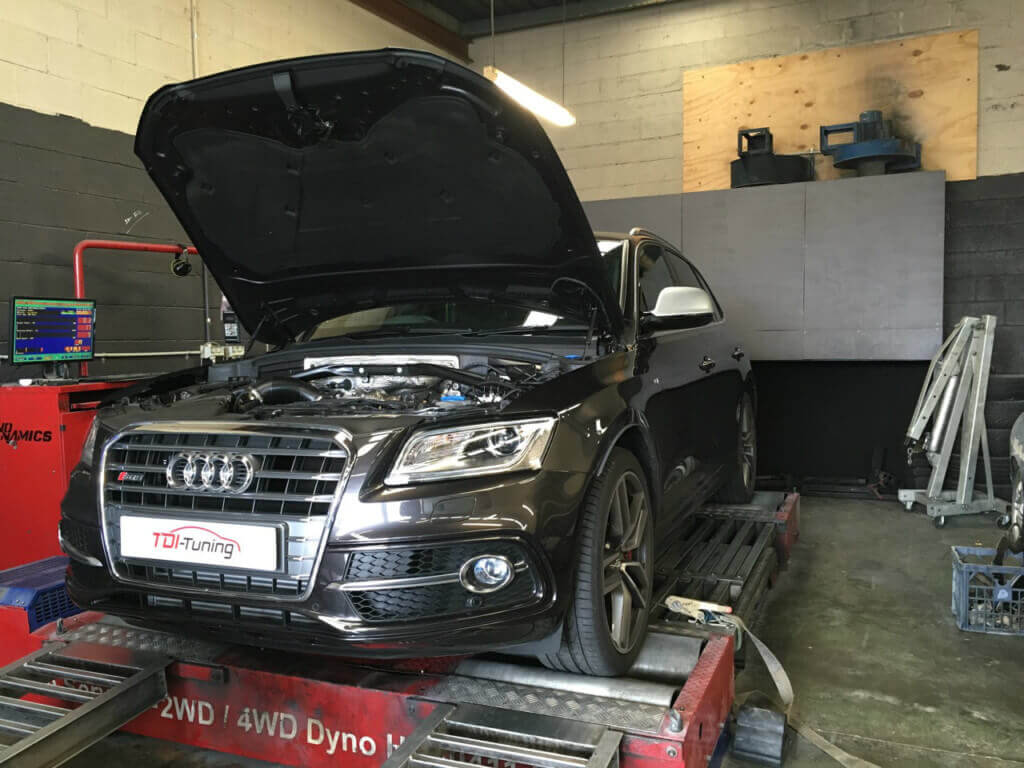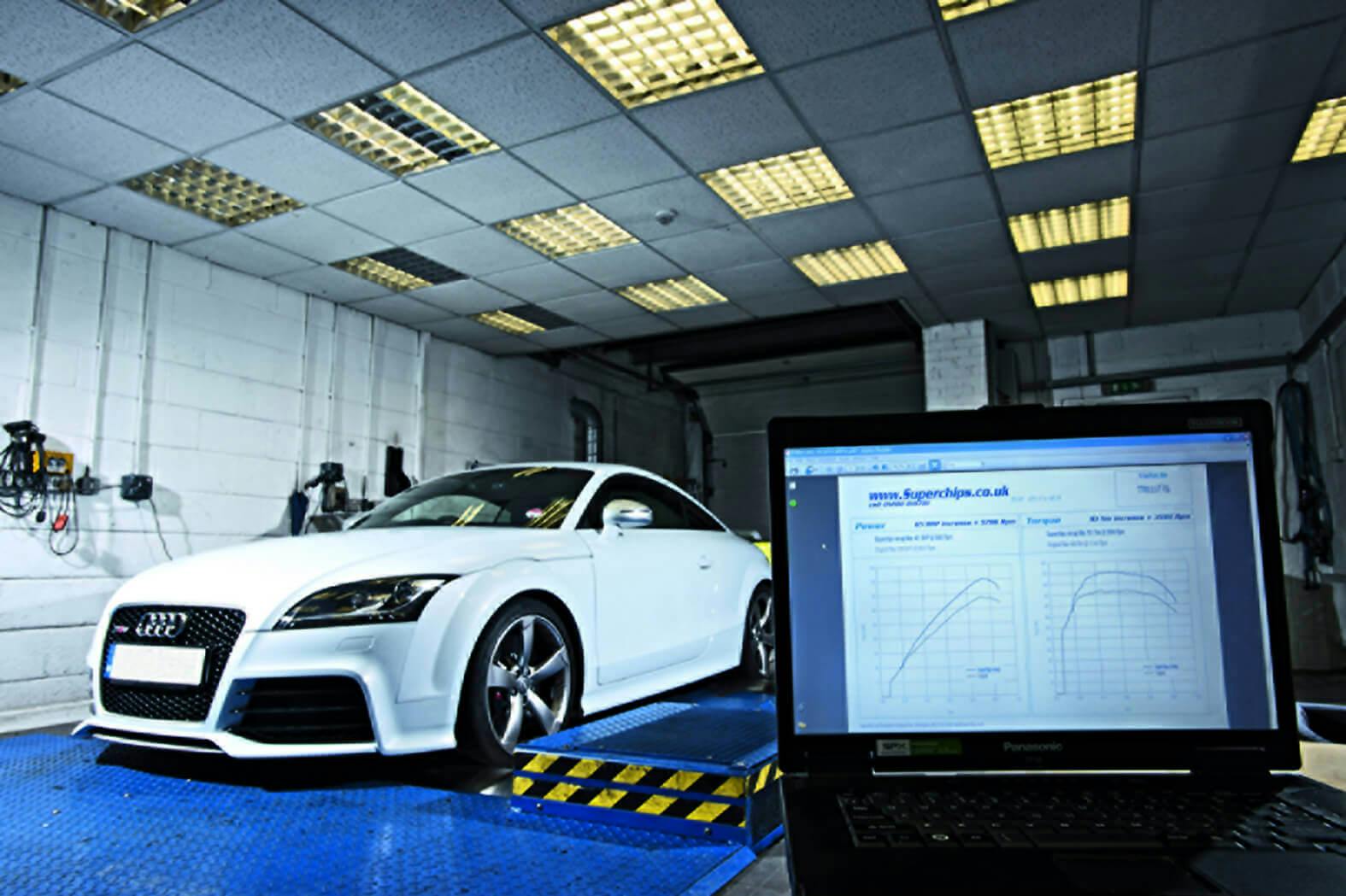Engine tuning is the process of fine-tuning your car's engine to provide greater performance, smoother power delivery and better fuel consumption.
Manufacturers limit the output of their engines to sell their models in as many territories as possible.
Superchips is one of the longest-established engine tuners, dating back to 1977. When it began in business the Buckingham-based company was able to offer a modest choice of conversions for just four cars.
It was carrying out an average of 30 upgrades a month.
Now it holds files for more than 4500 different makes and models, and is upgrading 600 cars a month.
So why is engine tuning so attractive for drivers?
By the end of this guide, you will understand:
- How much engine tuning costs
- What happens during the remap
- What questions you should ask to ensure you're dealing with a reputable firm
Page Contents
What is Engine Tuning?
Like us, an engine has a brain. It’s called the engine control unit, or ECU, and cars have ever more powerful versions of these computers.
An ECU controls the engine's ignition timing, the mix of air and fuel being sprayed into a cylinder, the pressure of the turbocharger and much more besides.
Engine tuning, often referred to as an ECU remap or engine chipping, involves introducing new ECU software to alter the performance characteristics of an engine.
What Does Engine Tuning Change?
Typically, the companies behind engine tuning will claim that the engine’s power, torque and even fuel economy can all be increased.
But specific claims over the latter aren’t as common, due to the influence of driving style.
Ian Sandford is the managing director of Superchips. He claims it takes the company around 12 months to develop a tuning upgrade for a new car or engine.
He says that although most people are drawn to the power outputs of an engine, they should pay more attention to the torque.“On a road car, this is what shoves you in the back, and makes a car smooth to drive,” says Sandford.
The most popular makes of car that his company works on are from the Volkswagen Group: Audi, Seat, Skoda and Volkswagen.
And where once drivers brought their diesel cars to the workshop, there has been a boom in petrol models, reflecting the new generation of small, turbocharged petrol engines.
“The gains with a turbocharged petrol engine are easy to achieve,” says Sandford. A typical example of those improvements is a 2008-13 Volkswagen Golf 1.4 TSI. It goes from 120bhp to 153bhp while the torque increases from 200Nm to 239Nm.
Or the hot Golf GTI, from 2009 onwards. This is claimed to rise from 207bhp to 251bhp, and from 280Nm to 353Nm.
How Much Does Engine Tuning Cost?
An engine tuning kit for a VW Golf GTI costs £332 from Superchips. The version for the Golf 1.4 TSI is from £399.
TDI Tuning charges £296 for an Audi SQ5 diesel upgrade. This increases power from 309bhp to 371bhp, and torque goes from 650 to 748Nm.
How Do You Complete Engine Tuning?

An upgrade to your car’s ECU is typically performed one of two ways.
The first is the traditional route of taking your car to a workshop. You then have a cup of coffee while a technician installs the new code into the brain of your car’s engine.
But an increasingly popular approach is for the manufacturer to send customers a special diagnostic tool. This plugs in to the car’s computer port – a little like plugging a USB memory stick into a computer – and automatically installs the new programme.
Either way, it’s important that the company allows the customer to return their car to its original configuration, should they wish to do so, says Superchips’ Ian Sandford.
How Can You Tell If a Remapping Company is Reputable?
There is no certification process for software upgrades to engines. Use common sense and look for a UK-based company with a long trading history.
Physical premises, dealership installation partners and positive online feedback from customers are important too.
Can I Buy Engine Tuning If My Car Has a Warranty?
If your car is still within its manufacturer warranty period (usually three or five years from registration), any changes to the car’s ECU will invalidate that warranty.
Some chipping companies do include a supplementary warranty. But consumers should question whether they really want to forgo the value of an original manufacturer’s warranty.
Do I Need to Notify My Insurance Company?
You must tell your insurer that your car has undergone engine tuning and any modifications to your vehicle. Failing to do so is likely to invalidate your policy.
And that means no payout in the event of an accident.






